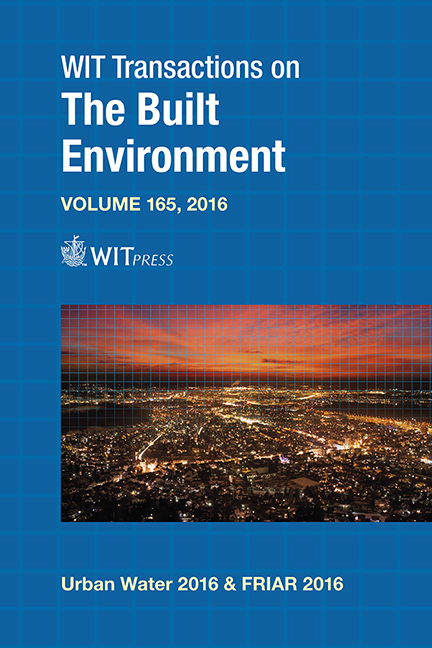Drinking Water Catchment And Minimum Vital Flow In Torrential Habitat
Price
Free (open access)
Transaction
Volume
165
Pages
12
Page Range
15 - 26
Published
2016
Size
366 kb
Paper DOI
10.2495/UW160021
Copyright
WIT Press
Author(s)
G. Ciaravino, C. Ciaravino
Abstract
This paper analyses the problems related to drinking water catchment in a torrential river habitat. In this context, estimating the minimum vital flow (MVF) needed to ensure optimal conditions for the survival of local wildlife species is no simple task as the evaluation of both the MVF and the water balance in the catchment basin is dependent upon hydrological parameters whose extremely variable values often make anthropic intervention incompatible with optimal natural flow conditions. In the case examined here, river discharge measurements taken during a survey campaign to assess the state of the river during a period of low water flow are compared with the MVF value. This comparison reveals measured discharge values that are incompatibly low compared to those calculated by means of the usual methodologies adopted for estimating the MVF. On the other hand, however, the sustainability of the quantity of water collected from the basin is confirmed by the mean yield of the reference Hydrogeological Unit, by the relative potential of the aquifer and, therefore, by the potential of the spring itself. A solution is proposed which, although specific to this context, does constitute a more general methodological approach.
Keywords
drinking water catchment, MVF, torrential regime, water balance





